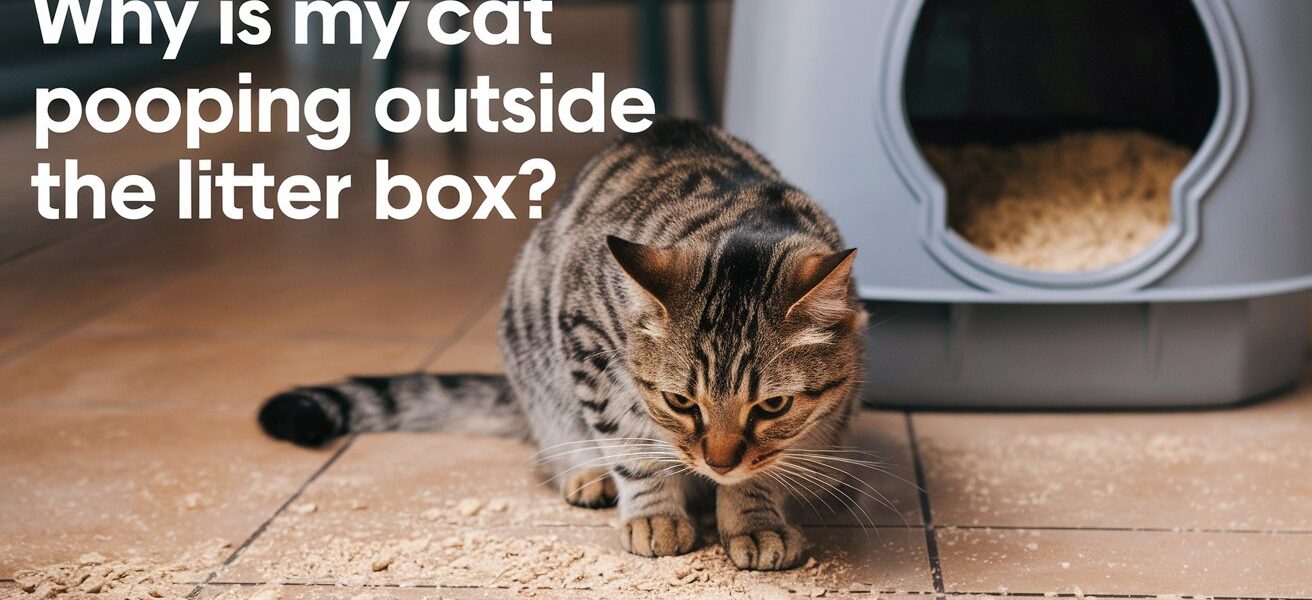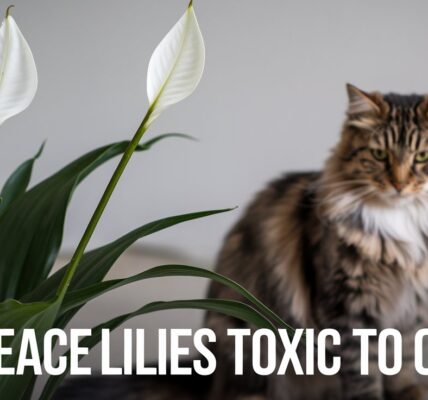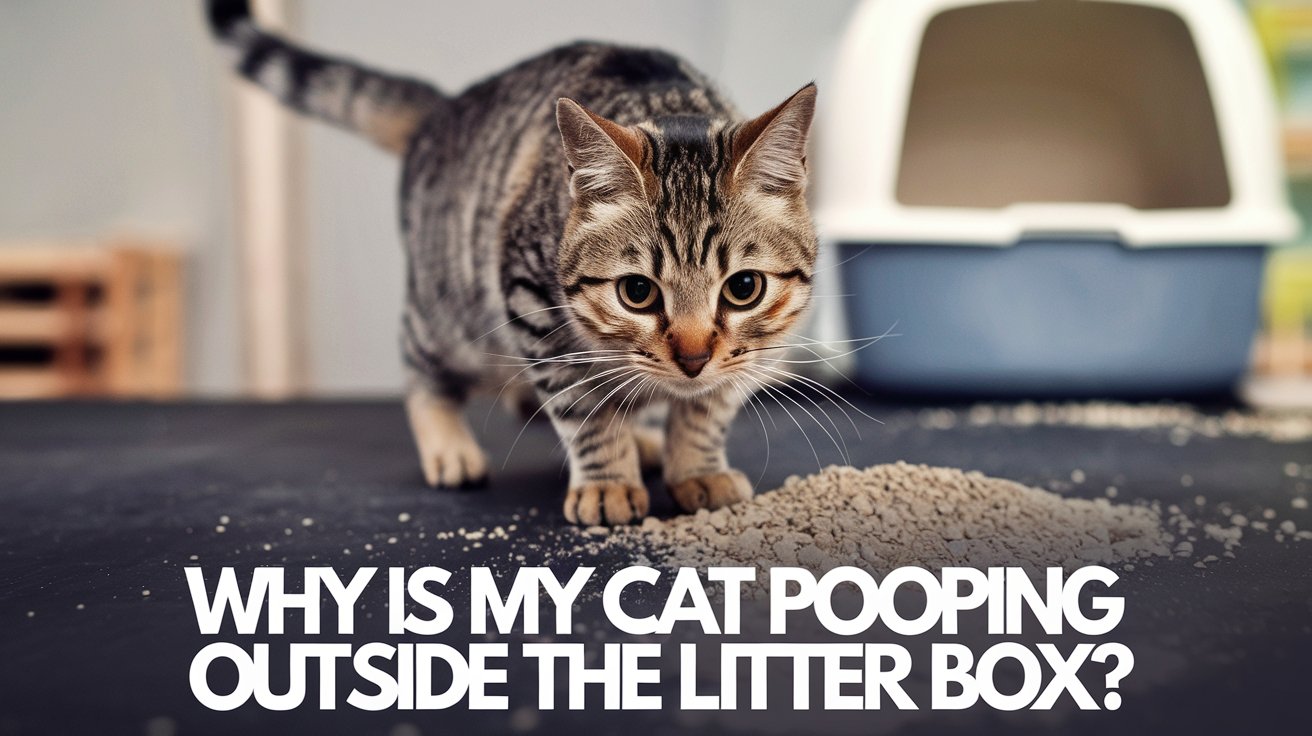
Why Is My Cat Pooping Outside the Litter Box? Top Reasons & Solutions for This Behavior
As a cat owner, you might find yourself puzzled and frustrated by the sudden or frequent appearance of cat poop outside the litter box. While cats are known for their cleanliness, this behavior change often indicates that something is amiss. Understanding the reasons behind this unwanted behavior is essential to restore harmony in your home and ensure your cat’s well-being. Let’s dive deep into why your feline friend might be pooping outside the litter box and what you can do about it.
Common Reasons for Litter Box Avoidance
Several factors contribute to a cat’s decision to go outside the litter box. These can be related to their health, environment, or even emotional state. Below are some of the most common reasons why your cat may be having these issues.
Health Issues That Cause Litter Box Problems
Before jumping to conclusions about behavioral issues, it’s important to consider potential health problems. Cats are notoriously good at hiding illnesses, and a sudden change in litter box habits can be a sign of underlying medical conditions.
- Digestive Disorders: If your cat is suffering from gastrointestinal problems like constipation or diarrhea, they may associate the litter box with discomfort and start avoiding it. Conditions like inflammatory bowel disease (IBD) or food allergies can also be at play.
- Urinary Tract Infections (UTIs): Although more commonly associated with urination problems, a UTI can also cause pain and discomfort that leads a cat to avoid the litter box.
- Arthritis or Joint Pain: Older cats, especially those suffering from arthritis, might find it difficult to climb into a litter box with high sides. The discomfort of stepping in and out can lead them to seek easier alternatives, like your carpet or floor.
If you notice other signs of illness, such as lethargy, weight loss, or changes in appetite, consult your veterinarian immediately. It’s always better to rule out health concerns before assuming it’s a behavioral issue.
Litter Box Preferences & Setup Issues
Believe it or not, your cat might simply be unhappy with its litter box situation. Cats are sensitive creatures, and even slight changes can lead to litter box avoidance.
- Dirty Litter Box: Cats are exceptionally clean animals, and they dislike using a dirty litter box. If the box isn’t scooped frequently, they may look for a cleaner spot to do their business.
- Uncomfortable Litter: The type of litter you use can make a difference. Cats prefer fine, sand-like litter because it’s softer on their paws. Switching to a different type or brand can cause your cat to reject the box altogether.
- Litter Box Location: Cats need privacy when using the litter box. If the box is in a busy area of the house, such as the kitchen or living room, your cat might not feel comfortable using it. Try placing the box in a quiet, secluded spot.
- Box Size & Type: Make sure your cat has enough space to move around inside the box. A litter box that’s too small may cause your cat to have accidents outside of it. Similarly, some cats dislike enclosed boxes, while others prefer them for added privacy.
Behavioral and Emotional Triggers
Cats are creatures of habit, and any disruption to their routine or environment can lead to stress. This stress often manifests in changes to their bathroom habits.
- Territorial Marking: If you have multiple cats or new pets in the home, your cat might be marking its territory by pooping outside the box. This is particularly common if they feel threatened by the new arrival.
- Stress and Anxiety: A move to a new home, a change in household dynamics, or loud noises can all trigger anxiety in cats. Stress can lead to all sorts of behavioral changes, including litter box avoidance. Even seemingly small changes, like rearranging furniture, can be unsettling to a sensitive cat.
- Litter Box Aggression: In a multi-cat household, one cat might be guarding the litter box, preventing another from using it. In such cases, you might notice the bullied cat eliminating elsewhere as a way to avoid confrontation.
Changes in Routine or Environment
Sometimes, the reason your cat is pooping outside the litter box is due to a change in its surroundings or daily routine. Cats don’t handle change well, and even minor disruptions can lead to litter box issues.
- New Family Members: Introducing a new baby, roommate, or even a pet can cause your cat to act out. Cats are territorial, and any newcomer may be perceived as a threat to their established territory.
- Changes in Feeding Habits: A sudden change in your cat’s food or feeding schedule can lead to digestive problems, causing litter box accidents. Always transition your cat to new foods gradually to avoid gastrointestinal upset.
- Household Rearrangements: Something as simple as moving the litter box or rearranging furniture can throw your cat off. They are creatures of habit, and these changes might confuse or stress them, leading to accidents outside the litter box.
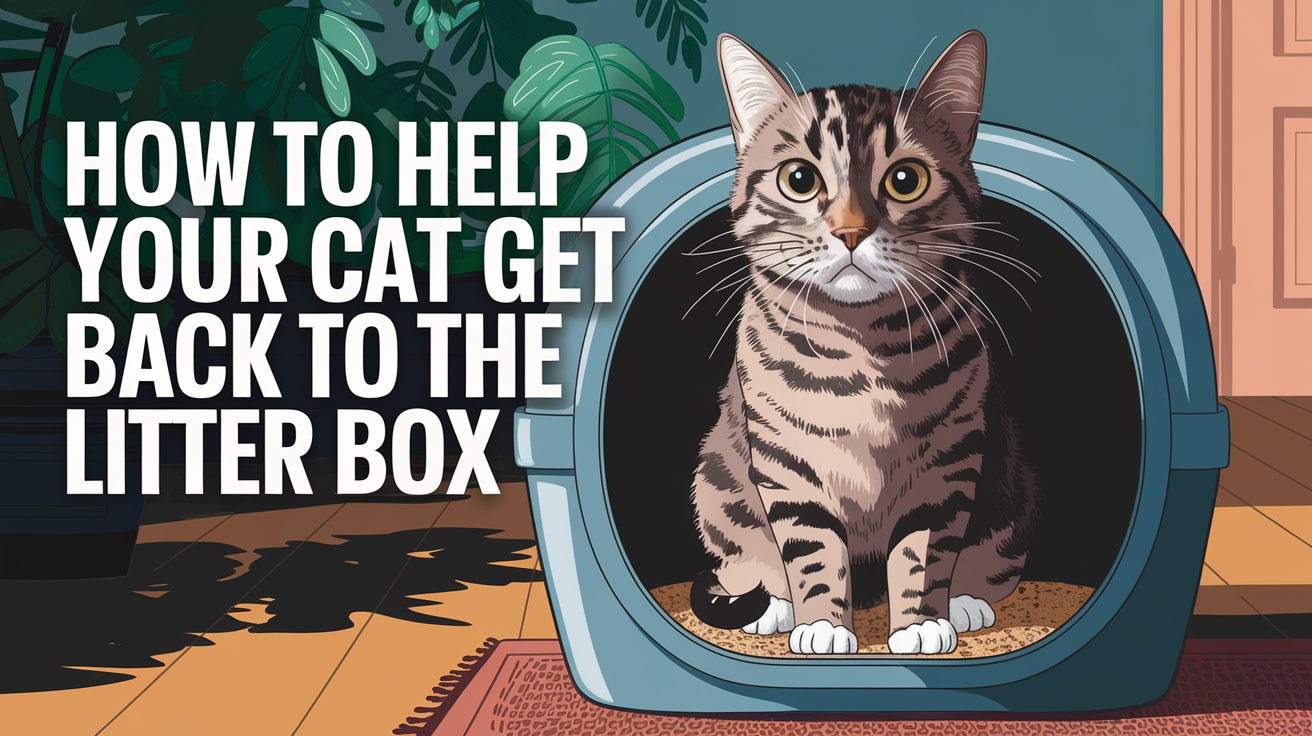
How to Help Your Cat Get Back to the Litter Box
Fortunately, there are practical steps you can take to address this issue and encourage your cat to use the litter box again. Whether it’s tweaking their environment, addressing health concerns, or providing emotional support, you can help your cat return to their good bathroom habits.
Visit the Vet for a Check-Up
If your cat has suddenly started pooping outside the litter box, a vet visit should be your first step. Ruling out or treating any underlying health problems is essential before addressing behavioral causes. Your veterinarian can conduct tests to determine if conditions like infections, digestive disorders, or arthritis are contributing to the problem.
Improve Litter Box Hygiene
One of the simplest solutions is to clean the litter box more frequently. Scoop the box at least once a day and do a full clean (including changing the litter and scrubbing the box) once a week. Ensure the box is dry before adding fresh litter.
If you have multiple cats, consider adding more litter boxes. A good rule of thumb is one box per cat, plus one extra. This helps reduce territorial disputes and ensures that your cat always has access to a clean box.
Try a Different Type of Litter
Ensure the Litter Box Is in a Quiet, Accessible Area
Reassess the location of your cat’s litter box. Make sure it’s in a quiet, low-traffic area where your cat feels safe. Avoid placing the box near loud appliances like washing machines, as sudden noises can scare your cat away from using the litter box.
Use Positive Reinforcement
Cats respond well to positive reinforcement. Offer your cat treats or affection as a reward when they use the litter box properly. Avoid punishing your cat for accidents, as this can increase their anxiety and make the problem worse.
Addressing Behavioral Issues
If you suspect that your cat’s behavior is driven by stress, anxiety, or territorial issues, there are several approaches you can take. Providing your cat with plenty of enrichment, such as toys, scratching posts, and perches, can help reduce stress. Feliway, a pheromone diffuser, can also help create a calming environment for anxious cats.
In multi-cat households, make sure each cat has its resources, such as litter boxes, food bowls, and sleeping areas, to reduce competition and stress.
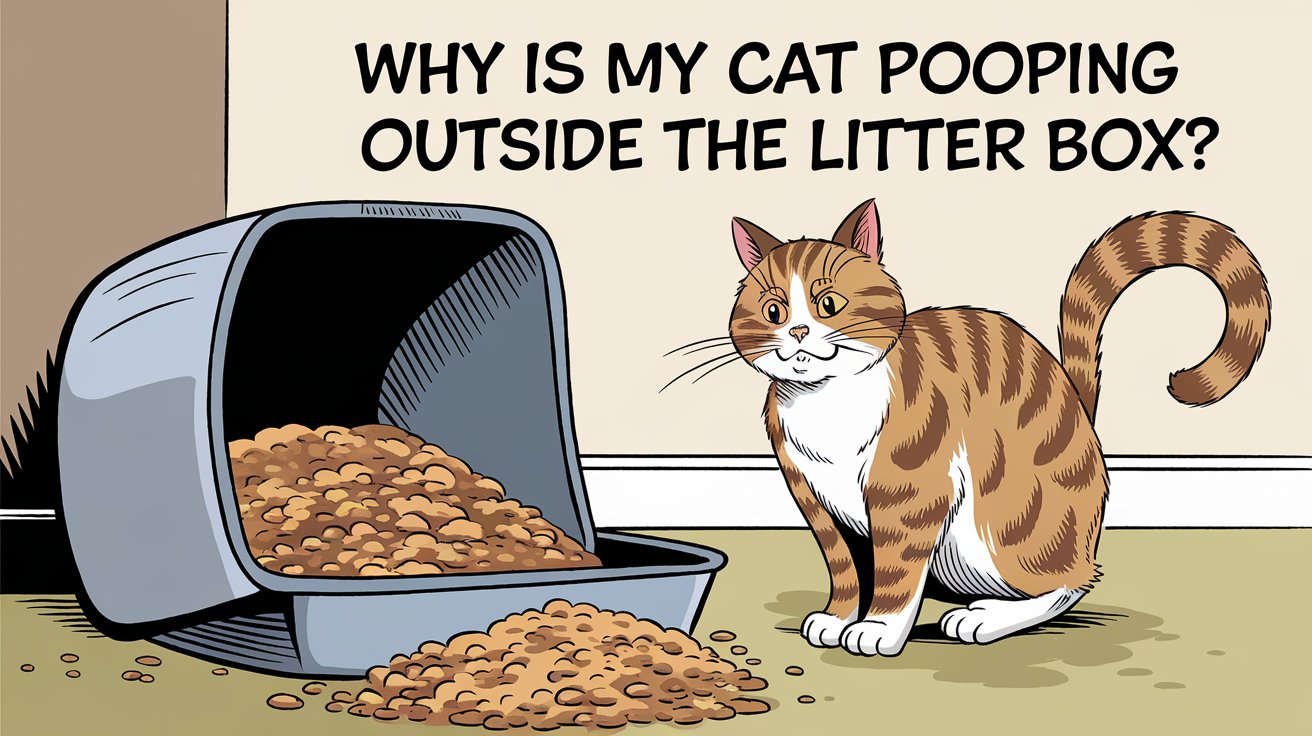
FAQs
Why does my cat poop outside the litter box but pee inside?
This could be a sign of digestive discomfort or stress. Cats sometimes associate pooping with pain or discomfort and may try to avoid the litter box for bowel movements, while still using it to urinate.
How can I stop my cat from pooping on the floor?
Ensure the litter box is clean and in a quiet, private area. Try different litter types and offer positive reinforcement when your cat uses the box. If the problem persists, consult your veterinarian to rule out medical issues.
Can stress cause my cat to poop outside the litter box?
Yes, stress and anxiety are common causes of litter box problems. Changes in routine, environment, or household dynamics can trigger stress in cats, leading them to eliminate outside the box.
Is it common for older cats to poop outside the litter box?
Older cats are more prone to health issues like arthritis, making it difficult to climb into the litter box. Consider providing a box with lower sides and check with your vet for any underlying health problems.
How many litter boxes should I have for multiple cats?
Can certain types of litter deter my cat from using the box?
Yes, some cats are sensitive to the texture or scent of certain litters. Try using an unscented, fine-grain litter that closely resembles sand, as this tends to be the most comfortable for cats.

I am a dedicated writer and expert in cats, with years of experience studying feline behavior, health, and breeds. Passionate about sharing my knowledge, I provide valuable insights and practical advice to help cat lovers understand and care for their furry companions. When not writing, I enjoy spending time with my beloved cats, continually learning and deepening my expertise.
